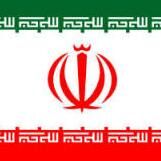
Ultra-Conservatives Seek to Cement Power in Iran
No one could say Iran’s Supreme Leader Ayatollah Ali Khamenei is a moderate. Yet, if Iranian President Mahmoud Ahmadinejad has his way, the ayatollah to take Khamenei’s place could almost make him look like a liberal in comparison.
Ayatollah Mohammad Taghi Mesbah Yazdi is the frontrunner to become Iran’s next supreme spiritual leader. Mesbah Yazdi is an ultra-conservative Iranian cleric made popular by Mahmoud Ahmadinejad’s success in Iran’s presidential elections last year—a success the cleric largely made possible by issuing a fatwa, or holy order, calling on Iranians to vote for Ahmadinejad. By some estimates, Mesbah Yazdi, as ideological mentor to the president, may be even more influential in Iran than the supreme leader, Ayatollah Khamenei.
On December 15, elections will be held for the Assembly of Experts, the 86-member body of clerics that oversees the regime and its military, and is responsible for the appointment and supervision of the supreme leader. With Ayatollah Khamenei apparently in failing health, it is considered just a matter of time before he will be replaced.
These elections will highlight the power struggle that Strategic Intelligence Review says is currently going on in Iran between Khamenei’s traditional conservatives, including former President Ali Akbar Rafsanjani, and Ahmadinejad’s fundamentalist conservatives.
Ahmadinejad’s candidate to head the assembly, Mesbah Yazdi, opposes any sort of rapprochement with the West, publicly advocates suicide bombing, keenly supports public floggings and has compared democracy to aids. He has been accused of providing religious sanction to death squads that murdered many of the government’s political opponents in the 1990s. He is also believed to be a major influence behind Ahmadinejad’s stance on nuclear weapons. “Mesbah Yazdi is on the hard right and very authoritarian,” said Ali Ansari, an Iran specialist at the Royal Institute of International Affairs. “He doesn’t even believe in democracy. Having him in power would lead to a much more hard-line puritanical rule in Iran. It would not be good news for the West.” The Sunday Telegraph believes his appointment as supreme leader “would be a massive blow to Western efforts to get Iran to cease its nuclear program and backing of militants in Lebanon, Iraq and among the Palestinians” (November 19).
Mesbah Yazdi is the leader of an extreme Islamic society, the Hojjatieh. Iranian insiders reveal that this group already has attained significant influence within the country (Strategic Intelligence Review, op. cit.). Since his election in June 2005, Ahmadinejad has appointed members of the society to key positions in the government, the diplomatic service and the military. It is also from Mesbah Yazdi’s Hojjatieh that Ahmadinejad gets his belief that chaos must be created to accelerate the coming of the Mahdi, Islam’s messiah. “If Mezbah Yazdi succeeds in taking over the Assembly of Experts, he could promote the Hojjatieh concept of the apocalypse needed to bring the return of the Mahdi and the dawn of a New Islamic world” (ibid.).
Strategic Intelligence Review concluded: “The outcome of December’s elections will prove crucial for Iran’s foreign policy. A victory for the Hojjatieh would undermine current diplomatic moves, thus propelling the Islamic Republic towards a direct confrontation with the West” (November 30).
As true as this may be, a confrontation with the West is bound to occur, whatever the results of the election (which are especially hard to predict, taking into account Iran’s record of electoral rigging). It’s only a matter of how transparently Tehran will work to overthrow Western society and the timing of it. If the ultra-conservatives get a boost, Islamist terrorism will likely become a more formidable foe as Iran throws its weight behind Hezbollah, Hamas and terrorists in Iraq as never before.
On the other hand, if the more pragmatic conservatives make gains, the pretense of diplomacy with the West may continue a little longer. Either way, Islamism, led by Iran, is waging war against the West: The method or degree of subtlety may vary, but the end result will be the same. The king of Islamist terrorism will continue to push against the West until a confrontation occurs.
